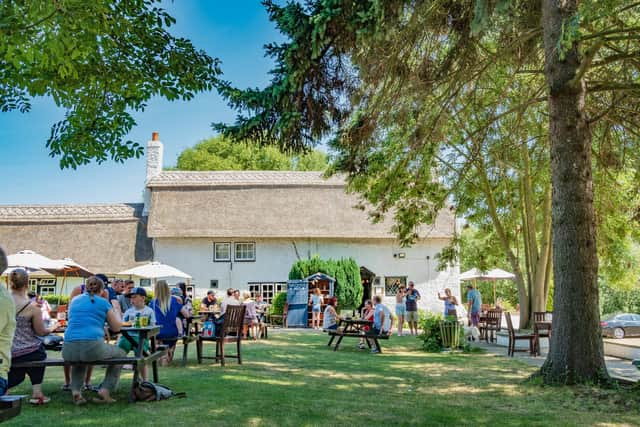When is May bank holiday? Date of May Day and Spring bank holidays 2021 for England and Wales
and live on Freeview channel 276
As more Covid restrictions ease across the UK, many people are wondering when the next long weekend falls this year so they can enjoy their new-found freedoms.
Thankfully the May Day bank holiday weekend is just around the corner, and people will be able to go to the pub or eat at a restaurant with family and friends.
Advertisement
Hide AdAdvertisement
Hide AdThose in England and Wales are spoiled with bank holidays in May, as shortly after that is the spring bank holiday weekend.


So, when are the May bank holidays in 2021? Here is everything you need to know.
When are the May bank holidays?
The May Day or Early May bank holiday is the next upcoming public holiday for people in England and Wales.
It falls on Monday 3 May this year.
Meanwhile, the spring bank holiday is on Monday 31 May - only four weeks later.
What will England’s Covid restrictions be then?
Advertisement
Hide AdAdvertisement
Hide AdFor those in England, many significant coronavirus rules were eased on 12 April.
On this date, most of the high street reopened, including non-essential shops, libraries, hairdressers and nail salons.
Indoor leisure facilities, like gyms, also opened, along with outdoor attractions like zoos, theme parks and drive-in cinemas.
The domestic tourism industry partially resumed in the country from this date, with campsites, holiday lets and other forms of self-contained accommodation permitted to open back up.
Advertisement
Hide AdAdvertisement
Hide AdAnd pubs and restaurants are now able to serve people outside, with customers able to have an alcoholic drink without ordering a substantial meal.
The easing of these restrictions means there will be more for people to do during the first May bank holiday.
Step three of the lockdown roadmap isn’t set to come into place until 17 May at the earliest.
The further lifting of restrictions is still dependent on the prevalence of the virus in England, and the progress of the vaccinations programme, at the time.
Advertisement
Hide AdAdvertisement
Hide AdBut if it goes ahead, there will be many options for celebrating the spring bank holiday at the end of the month.
Up to 30 people from different households may be able to gather outside, while indoor gatherings with the rule of six, or two households, could be allowed.
Indoor hospitality might also reopen, along with indoor entertainment venues like cinemas and children’s play areas.
This date is also the earliest date that international holidays could be able to restart, subject to a review by government ministers.
When are the other bank holidays in 2021?
Advertisement
Hide AdAdvertisement
Hide AdMost bank holidays fall on a Monday in 2021, with a couple of exceptions.
There will be two substitute days for the Christmas and Boxing Day holidays, since the two days fall over the weekend.
After the two May bank holidays have passed, there are still three bank holidays to look forward to.
That includes:
Summer bank holiday - Monday 30 August
Christmas Day (substitute day) - Monday 27 December
Boxing Day (substitute day) - Tuesday 28 December
The government warns that your employer isn’t entitled to give you paid leave on bank or public holidays, and it also notes that bank holidays might affect how and when any benefits are paid.
Advertisement
Hide AdAdvertisement
Hide AdScotland and Northern Ireland have their own bank holidays on several dates throughout the year.
Why do we have bank holidays?
Bank holidays were first introduced by banker and politician Sir John Lubbock, who drafted the Bank Holiday Bill in 1871.
Initially, it was just banks and financial buildings that closed, which is where the name comes from, but gradually businesses, shops, schools and the government joined in the holidays.
You don’t actually have to take a bank holiday off - it’s all dependent on your job contract.